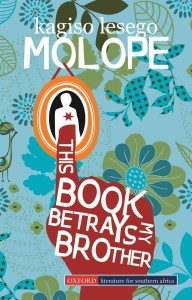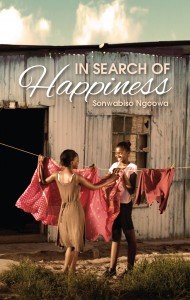Growing up we are never taught how to get the most out of life. We are seldom taught how to live fulfilling lives that are also enriching to others and ultimately the communities we live in. I suppose this is because our parents often don’t have fulfilling lives themselves. Sometimes parents are too busy running a house to think about the ways a child can cultivate a life that is enriched and more fulfilling.
Going to church and being spiritual is one of the ways in which children are taught they will have a fulfilled life. That a relationship with god will lead to a fulfilling life. Many of us who grew up in a church environment and have since left it know that fulfilment does not necessarily come from a relationship with god. Sometimes fulfilment comes after you demolish your relationship with the church as that relationship can be toxic, especially if who you are is at odds with the bible.
I suppose it would be good for me to explain or describe what I mean by fulfilment. For me fulfilment is realising that we are only here on earth for a short period of time and that we should try and live our lives as if the possibilities are endless.
Living a fulfilling life necessitates an understanding that we have some power to control the direction of our lives. That we are often faced with difficult choices but regardless, the choices we make will determine how enriching and fulfilling our lives will be. People should really invest in getting to know themselves and encourage children to do the same.
The project of developing a healthy sense of self is an on-going process that requires consciousness and children need to be guided in this process. Sometimes life doesn’t feel so good, but we must allow ourselves to feel what we feel. Also, not feeling great about things in your life can be a catalyst for a project that will lead to an enriching life. It is sometimes hard to deal with who we are, to be honest with ourselves about who we are.
We owe it to at least ourselves to be honest about who we are and most importantly who we want to be. Our parents and society are very poor at teaching us to own our feelings and emotions. As children we are often disregarded as things to be “seen and not heard” which cripples us from being able to express how we feel when we are feeling it.
South Africa is a very hard society. It is an angry society, and sometimes justifiably so, but I do think that this anger gets in the way of us finding ways to have fulfilling lives. Instead we find ways to destroy each other’s lives. We need to nurture the soft side of our beings, to allow ourselves to feel, to hurt, and be emotional. Also South Africans have very limited ideas of what can be fulfilling in life and we often police people who find life satisfaction and fulfilment on things that are out of the ordinary.
Some people find fulfilment in life by falling in love with people of the same sex as them. Some people find fulfilment in life by changing the sex they were born with to a sex that resonates better with how they feel on the inside. The places where people find their joy, where they find life, are unlimited. The major problem is that we live in a society that discourages people from living their truth, if their truth questions societal standards and norms. This can be limiting when people are trying to find fulfilment in a world that rejects some of the fundamental parts of who they are.
As a society, one that received a new lease on life when Nelson Mandela was released, apartheid ended, and all South Africans voted for the first time, we had (and still have) a chance to develop new ways to be. We have an opportunity to experiment with what it means to be living in South Africa, indeed the world in the 21st century. We should really applaud people who travel hard roads to find fulfilling lives, even when their lives deviate from the norm. We often encourage people to go on self-discovery journeys only to reject what they have found, because it is not what we expected.
So, what is really important to ask ourselves, our children, our lover(s), our neighbours, our students, our sisters and brothers, our friends, and our colleagues is – what do you want out of life? Who are you? What makes you feel alive? What will make you smirk lying back on your deathbed? When you can answer these question honestly, at least to yourself first, without fearing what others will say or think, then you are on your way to discovering what can make your life more fulfilling.
Another crucial aspect of a fulfilling life is the ability or the option to change your mind when the choices you have made at one point in your life don’t seat well with where you are currently. The choices we make at one point, which are incredibly fulfilling at that point, does not mean they will always be fulfilling. The decisions we make, about who to love, where to work, or a course at university, these are things that if need be can changed. This is the glory of knowing yourself and knowing what you want, you also know when what used to be fulfilling is no longer rewarding.
One of the hardest things to overcome in trying to have a fulfilling life is the fear of failing. The fear of failure is something that holds people back, but what people often neglect is the fulfilment that comes from trying, from giving it your all.
So, as a society, let us encourage people to know who they are, and to accept the different fulfilling life goals people have. Let us approach each other with a little bit of tenderness because in some shape or another we are all grappling with what it means to be alive.
Written by Lwando Scott

